Earn Your Online Bachelor’s Degree in Psychology
About
A psychology major is the first step toward a career where you can make a lasting impact on the people you work and interact with.
Whether you plan to continue in your current career, reenter the workforce with a new set of skills, or enroll in graduate school, an online bachelor’s degree in psychology from Baker University is your stepping-stone.
Build a solid foundation to become a practitioner, researcher, or educator.
Baker’s academic advising team acts as your partner as you earn a psychology degree. We’ll help you plan your courses so you can efficiently complete an online bachelor’s degree in psychology from wherever you are.
Baker’s psychology major gives you:
- A well-rounded perspective on the ever-changing world of psychology
- An understanding of the fundamentals of general, developmental, social, learning, and behavioral psychology to help you discover your niche
- The ability to design and execute your own research proposal and plan
- Valuable critical thinking and analytical skills that apply in any career or situation
Program Highlights: Online Psychology Degree
Psychology is one of the most popular undergraduate majors in the United States for a reason: An online psychology degree will make you a better thinker, help you understand how people function, and prepare you to contribute to transformative psychology research.
At Baker, you don’t have to choose between entering the workforce or going to college. You can do both! Our program is one of the few psychology programs offering online curriculum that covers one course at a time.
Here’s what else you can expect from Baker’s online bachelor’s degree in psychology:
Accredited psychology curriculum. Baker’s online bachelor’s degree in psychology is accredited by the Higher Learning Commission. We meet strict standards and are engaged in continuous curriculum improvement.
Course credit for work experiences. Baker’s Prior Learning and Assessment Center recognizes the psychology experience you’ve already gained outside the classroom. We’ll help you find ways to earn credit for what you know so you can earn your psychology degree faster and more affordably.
Prepare for a graduate psychology degree. If a master’s or PhD is on the horizon, then this online bachelor’s degree in psychology will uniquely prepare you for the next level of your education.
Small classes by design. We purposely keep our program small so you can learn comfortably. Our 10:1 student-to-faculty ratio allows for personalized discussions and leaves time for one-on-one support from faculty.
What Can You Do With a Psychology Major?
A psychology major leads to many new opportunities. Land a promotion or discover a new job in a field ranging from social services and education to human resources and research.
For others, a psychology degree paves the way for a specialized graduate degree that leads to a career in academia, private practice, law enforcement, or mental health.
With your psychology degree, you’ll be eligible for job titles like these:
- Activities director
- Career counselor
- Case manager
- Childcare worker
- Employment counselor
- HR specialist
- Marketer
- Mental health advocate
- PR representative
- Researcher
In any role you choose, you’ll be empowered to effectively help others, show compassion, dig deeper into human behavior, and apply research in a variety of settings.
Financial Aid: Online Bachelor’s Degree in Psychology
Learn how affordable your online psychology degree can be. You’ll find the return on investment you’re looking for with Baker University’s highly ranked online programs.
In fact, Baker offers the highest return on investment of private colleges in Kansas, according to Georgetown University Center on Education and the Workforce (2022).

Baker Is Military Friendly
Military Advanced Education named Baker University one of America’s Top Military-Friendly Colleges and Universities. Veterans and active-duty service members and their spouses may qualify for tuition discounts.

Online Psychology degree: Meet Our Students
“Baker has allowed me to hone in on my passions and my career. It has made me a stronger individual. My time at Baker changed who I thought I could be and made me understand that the nerves of facing your future are part of the fun. Baker gave me more confidence due to the kind, warm-hearted, and personable faculty. They have set me on a road to success, and I intend to follow that path: twists, turns, forks, and all.”
—kristina | Bachelor’s in psychology, class of 2021
Related Programs at Baker University
If you’re not sure whether a psychology degree is the best fit for you, Baker has other online bachelor’s programs designed for working professionals, too:
Bachelor of Science in Criminal Justice: Be prepared for a professional career in the criminal justice system or for law school or a criminal justice graduate program.
Requirements & Curriculum





